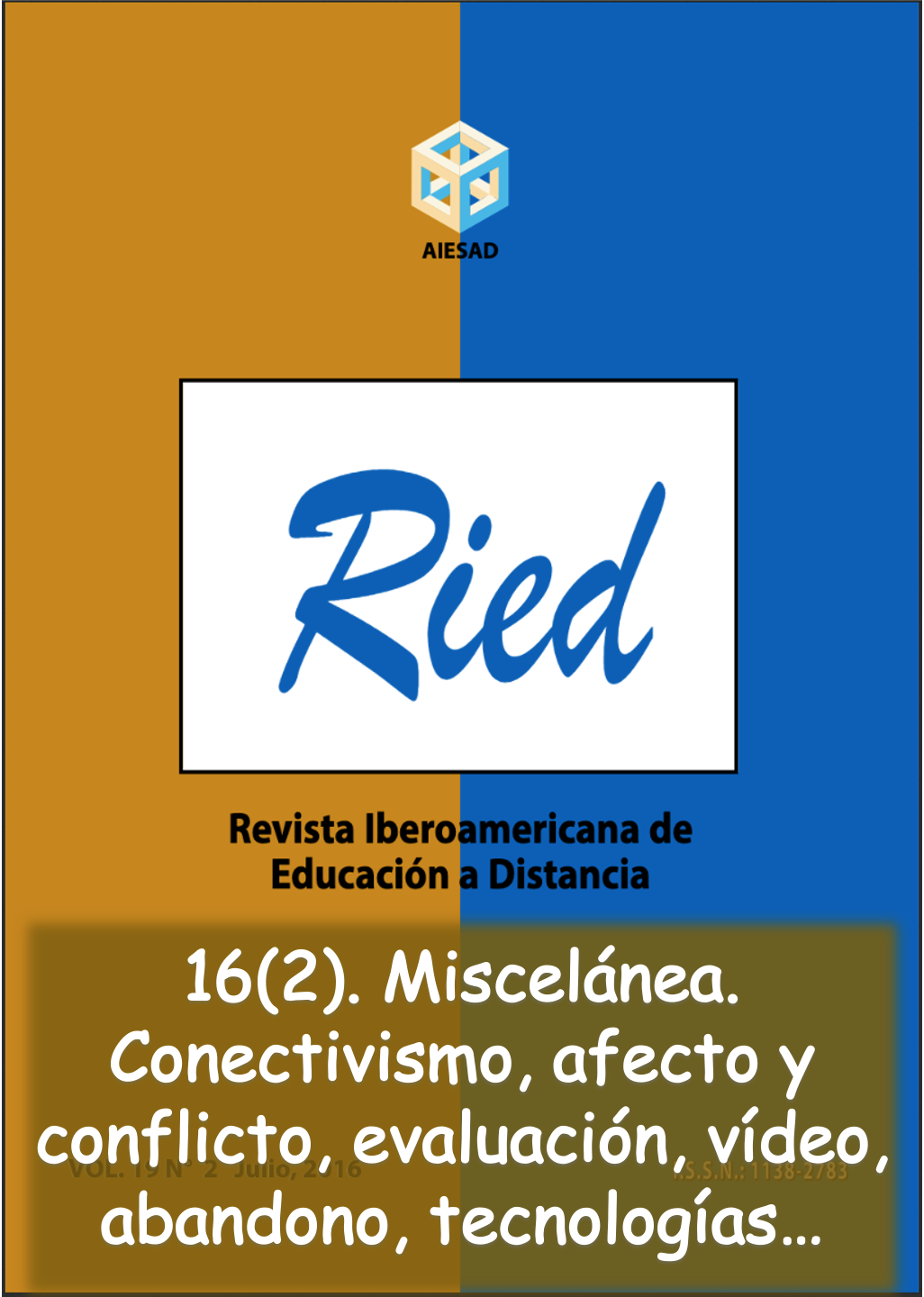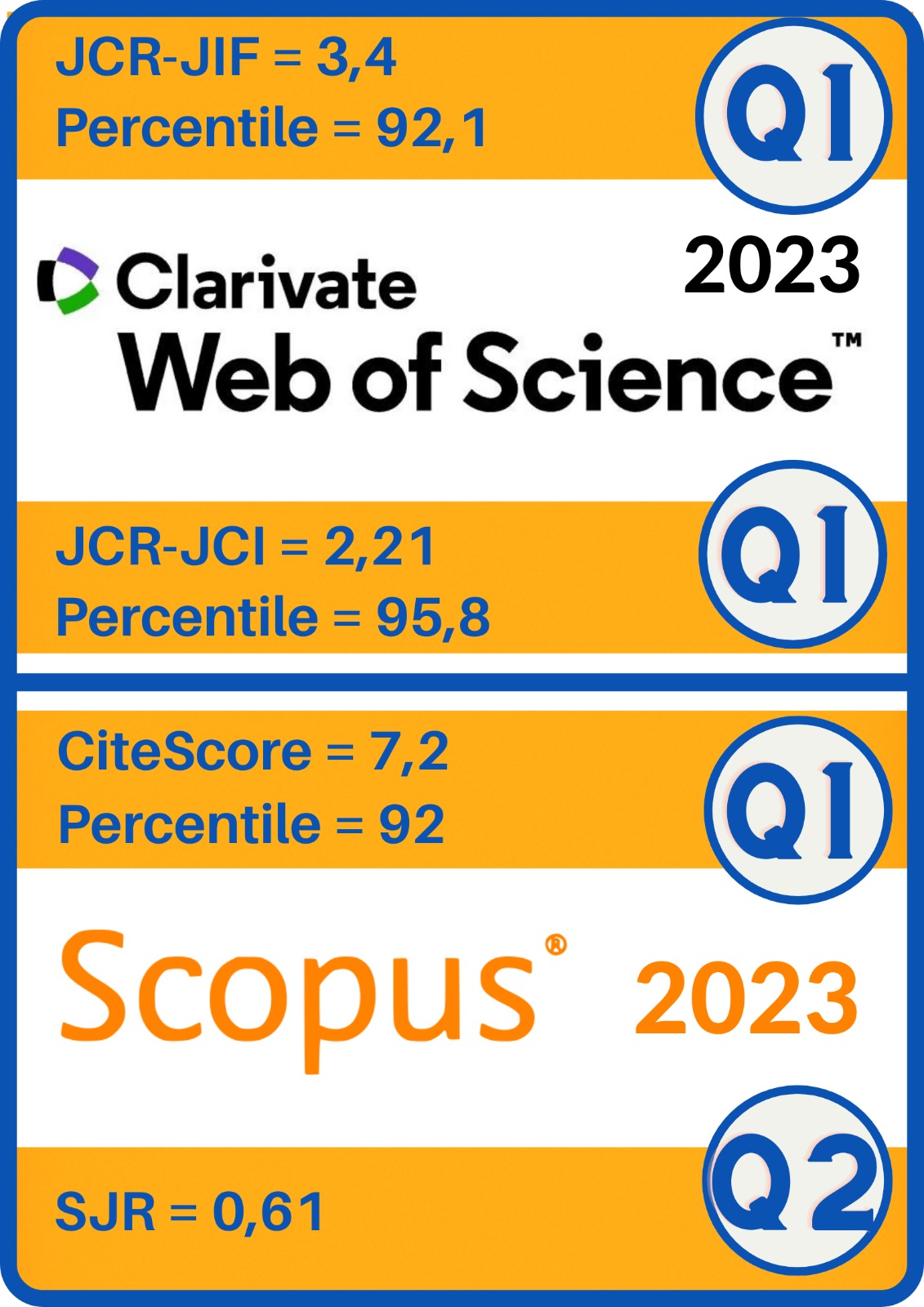Propositions and controversies in connectivism
DOI:
https://doi.org/10.5944/ried.16.2.9903Keywords:
connectivism, connectivist pedagogy, networks, weak ties, MOOCAbstract
In this paper, we analyze the ideas and applications of a connectivist project. For connectivism, we focus on what is most relevant, namely the new conditions and ecology of learning, which encompasses ‘information abundance’, ‘networks’, and ‘connectivity’. In addition, research proposals and numerous concepts are added to the connectivist proposal—all of which require discussion and analysis. In connectivism, innovative knowledge typically involves combinations, fusion, and overlapping of data and information, which can be freely found in links, nodes, and networks. This is a questionable assumption, given the nature of the network. However, the promotion of connectivism has won both fans and critics. For instance, critics of connectivism criticize its claim to be a ‘learning theory’. Furthermore, the greatest acceptance of connectivism is found in its connection with pedagogy. Finally, there are both reservations and criticisms about the concept and practice of Massive Open Online Courses.
Downloads
References
Athabasca University (2011). IRRODL. International Review of Research in Open and Distance Learning, 12 (3), Manitoba, Canadá. [en línea] Disponible en: http://www.irrodl.org/index.php/irrodl/issue/view/44 [consulta 2012, 21 de noviembre].
Barabási, A. L. (2002). Linked: the new science of networks. How everything is connected to everything else and what it means. Cambridge, MA: Perseus Publishing.
Bauman, Z. (2003). Comunidade: a busca por segurança no mundo atual. Rio de Janeiro: Zahar. BBC (2010). Seis graus de separação. [en línea] Disponible en: http://www.youtube.com/watch?v=pz29Onl_uRw [consulta 2012, 10 de diciembre].
Cochrane, G. (2011). Why Connectivism is not a learning theory. Blog A Point of Contact. [en línea] Disponible en: http://apointofcontact.wordpress. com/2011/09/07/why-connectivism-isnot-a-learning-theory/ [consulta 2012, 5 de diciembre].
Downes, S. (2008). Places to go: connectvism & connective knowledge. Innovate. Journal of Online Education, 4 (6), (1-6). Nova Southeastern University. [en línea] Disponible en: http://www. innovateonline.info/pdf/vol4_issue6/ Places_to_Go-__Pedagogy_in_Action. pdf [consulta 2012, 21 de noviembre].
Downes, S. (2010). Connectivism and connective knowledge: essays on meaning and learning networks. National Research Council Canada. Published under a Creative Commons License.
Gardner, H. (2012). Educating digital youth and nurturing good work. [en línea] Disponible en: http://vimeo. com/55545080 [consulta 2012, 28 de diciembre].
Granovetter. M. (1973). The strength of weak ties. American Journal of Sociology, 78 (6), (1360-1380).
Granovetter, M. (1983). The strength of weak ties: a network theory revisited. Sociological Theory, 1, (201-233).
Kerr, B. (2006). A challenge to connectivism. [en línea] Disponible en: http:// billkerr2.blogspot.com.es/2006/12/ challenge-to-connectivism.html [consulta 2012, 05 de octubre].
Kerr, B. (2007). My argument against connectivism. [en línea] Disponible en: http//www2.franciscan.edu/jcoyle/ media/OCC_B_Kerr_07Feb2007.mp3 [consulta 2012, 15 de octubre].
Kop, R. (2011). The chalenges to connectivist learning on open online networks: learning experiences during a massive Open Online Course. IRRODL, International Review of Research in Open and Distance Learning, 12 (3), (19-37).
Kop, R.; Hill, A. (2008). Connectivism: learning theory of the future or vestige of the past? IRRODL, International Review of Research in Open and Distance Learning, 8 (3), (1-13).
Lévy, P. (1996). O que é virtual? Rio de Janeiro: Editora 34. Milgram, S. (1967). The small world problem. Psychology Today. 1 (1), (61-67).
Ryberg, T. (2009). Connectivism wiki and the creation of knowledge. [em línea] Disponible en: http://ryberg.blog.hum. aau.dk/tag/connectivism/ [consulta 2012, 05 de septiembre].
Santamaría, F. (2010). Introducción. La era conectiva: por el desorden natural de los artefactos y nodos. In Siemens, G. (2004). Connectivism: a learning theory for the digital age. [en línea] Disponible en: http://www.elearnspace. org/Articles/connectivism.htm [consulta 2012, 30 de octubre].
Siemens, G. (2005). Connectivism: learning as network-creation. [en línea] Disponible en: http://www.elearnspace.org/ Articles/networks.htm [consulta 2012, 30 de octubre].
Siemens, G. (2006). Knowing Knowledge. [en línea] Disponible en: http://www. elearnspace.org/KnowingKnowledge_ LowRes.pdf [consulta 2012, 25 de octubre].
Siemens, G. (2008). Connectivism. [en lí- nea] Disponible en: http://www.connectivism.ca/?p=116 [consulta 2012, 21 de noviembre].
Siemens, G. (2010). Conociendo el conocimiento. Traducción de Emilio Quintana, David Vidal, Lola Torres y Victoria A. Castrillejo. [en línea] Disponible en: http://www.nodosele.com/conociendoelconocimiento/ [consulta 2012, 25 de octubre].
Siemens, G. (2012). Connectivism: Downes on connectivism and connective knowledge. [en línea] Disponible en: http://www.connectivism.ca [consulta 2012, 12 de diciembre].
Siemens, G.; Conole, G. (2011). Editorial. IRRODL, International Review Of Research In Open And Distance Learning, 12 (3), (i-iv) [en línea] Disponible en: http://www.irrodl.org/index.php/ irrodl/article/view/994/1831 [consulta 2012, 23 de noviembre].
Sobrino Morrás, A. (2011). Processo de ense- ñanza-aprendizage y web 2.0: valoración del conectivismo como teoría de aprendizaje post-constructivista. Estudios Sobre Educación, 20 (117-140) [en lí- nea] Disponible en: http://dspace.unav. es/dspace/bitstream/10171/18344/2/ ESE%20117-139.pdf [consulta 2012, 10 de enero].
Watts, D. J. (2003). Six Degrees: the science of a connected age. New York e London: W.W. Norton & Company.
RedCUED. (2012). De la Cátedra UNESCO de Educación a Distancia. [en línea] Disponible en: http://redcued.ning. com/ [consulta 2012, 09 de diciembre].
Zapata, M. (2011) ¿Es el “conectivismo” una teoría? ¿Lo es del aprendizaje? [en línea] Disponible en: http://blogcued. blogspot.com.es/2011/09/es-el-conectivismo-una-teoria-lo-es-del.html [consulta 2012, 09 de diciembre].
Downloads
How to Cite
Issue
Section
License
The articles that are published in this journal are subject to the following terms:
1. The authors grant the exploitation rights of the work accepted for publication to RIED, guarantee to the journal the right to be the first publication of research understaken and permit the journal to distribute the work published under the license indicated in point 2.
2. The articles are published in the electronic edition of the journal under a Creative Commons Attribution 4.0 International (CC BY 4.0) license. You can copy and redistribute the material in any medium or format, adapt, remix, transform, and build upon the material for any purpose, even commercially. You must give appropriate credit, provide a link to the license, and indicate if changes were made. You may do so in any reasonable manner, but not in any way that suggests the licensor endorses you or your use.
3. Conditions for self-archiving. Authors are encouraged to disseminate electronically the OnlineFirst version (assessed version and accepted for publication) of its articles before publication, always with reference to its publication by RIED, favoring its circulation and dissemination earlier and with this a possible increase in its citation and reach among the academic community.








